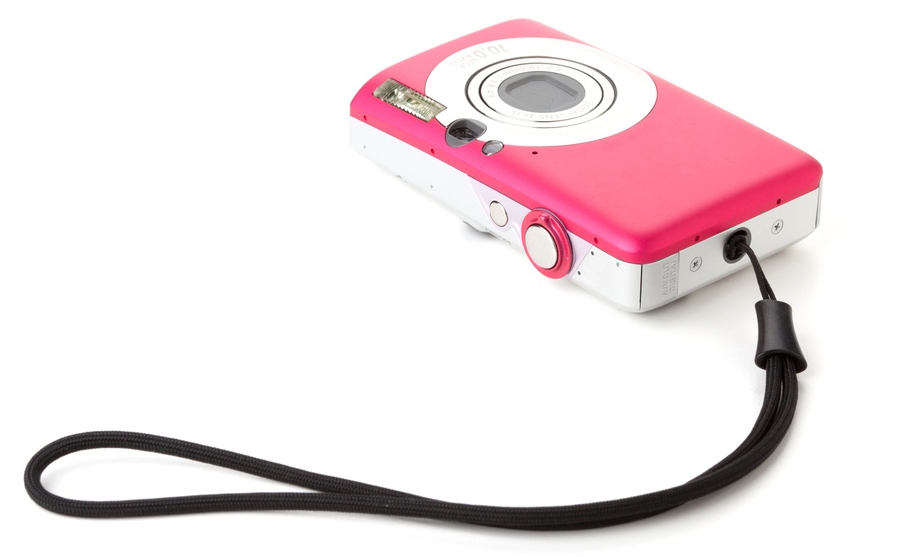In defense of the generation that documents everything
Every week, PhilSTAR L!fe explores issues and topics from the perspectives of different age groups, encouraging healthy but meaningful conversations on why they matter. This is Generations by our Gen Z columnist Angel Martinez.
I finally caved. After months of proving I was above peer pressure, I bought my own digital camera at a flea market a five-minute walk from where I went to university.
My mom wondered why I had to participate in this relentless trend of reviving long-dead forms of technology, but hey, I’m not immune to the charms of pink handheld gadgets that come with cutesy stickers. When my digicam isn’t in my purse, it’s perched on a shelf, next to my film and disposable cameras, my physical journal that is home to mementos I pick up from certain places. Though the appeal lies in their analog nature, the finished product often ends up on my TikTok, Instagram, and X as well.
This desire to excessively document and romanticize every aspect of our mundane existence is a symptom of our collective main character syndrome. It’s Gen Z’s go-to method for coping with the injustices of daily life, and combating a growing sense of disillusionment. It’s why my "For You" page is littered with snippets from strangers’ solo adventures—and why every girl has a separate main, dump, and photography account. I’m reminded of Justine Danielle Reyes’ TEDx talk, where she argues that Zers’ default "delulu" state is actually a form of resistance. We refuse to accept that life isn’t all it has shaped up to be, so we make more out of what is afforded to us.

Unfortunately, this sometimes crosses into borderline sociopathic territory. One student nurse recently vlogged a flatlining patient as part of a day in her life; another carefully positioned their camera across someone being administered CPR. Social media users often fabricate moments for virality’s sake, or ruin the experiences of others just to create their own memories—much like every concert goer who shines their camera flash in the crowd’s faces when they want to capture themselves singing along.
Despite these downsides, documenting everything remains a crucial exercise, in an era where young people are growing more forgetful than ever before. Studies show that Gen Z’s attention span is down to eight seconds long, amplified by our endless, algorithm-driven feeds. Online trends and headlines come and go at 5G speeds, leaving us with barely any time to process and reflect on how we shape and are shaped by them. No wonder our identities are so in flux, our formative years so devoid of cultural markers, and our days so homogenous we often complain that we have no sense of time.
It’s this shakiness of self that institutions and influential figures intend to benefit from, as they warp history as we know it to distort their existing track record. Why else would politicians need to present themselves in vaguely relatable ways, if not in the hopes of absolving themselves of past corruption cases? How many canceled celebrities have pulled the "social media break" card and returned with an exciting project that erases the need for an apology?

In an age where everything disappears with a scroll, I hope this column serves as a more reliable record of the times: one that faithfully represents the issues we care deeply about and provides a picture of who we were long after we’re gone. More importantly, I pray that each piece lives on through the conversations it starts. By documenting and discussing what matters most to us, we’re able to look back and not only see how far we’ve come, but also avoid falling into the same cognitive traps.
It must be said, though, that our existing attempts to document only provide snapshots rather than the complete picture. We see a snippet of a happy couple celebrating their anniversary, without the hard work it took to arrive at that milestone; the seemingly flawless five-minute makeup routine, but not the high maintenance monthly procedures that allow for such perfection. Even articles don’t always capture each side of an argument, which could fuel the one-dimensional, black-and-white way we tend to approach issues.
With that said, I do not claim to be the superior authority on anything or the sole mouthpiece of a generation. I am but a singular perspective, hoping to provide clarity in a time when false narratives and harmful rhetoric proliferate even faster than credible information. Allow this column to serve as a starting point, additional substantiating information—but never the end-all, be-all.
I highly encourage my generation to revive a skill that we’re slowly losing the appetite for: As the famous Stan Twitter reference goes, “Mama, let’s research!” Entertain multiple perspectives! Arrive at your own opinion, rather than adapting what the latest viral TikTok explainer says! I want us to relearn the concept of nuance. We can feel compassion for someone who has committed something wrong, while also acknowledging that they deserve to be punished for what they’ve done. We can condemn someone’s actions, while admitting that they are sometimes victims of forces and factors beyond their control. We can criticize the system we operate under, while also imagining a future beyond it.
Generations by Angel Martinez appears weekly at PhilSTAR L!fe.



